Posted on March 3, 2025
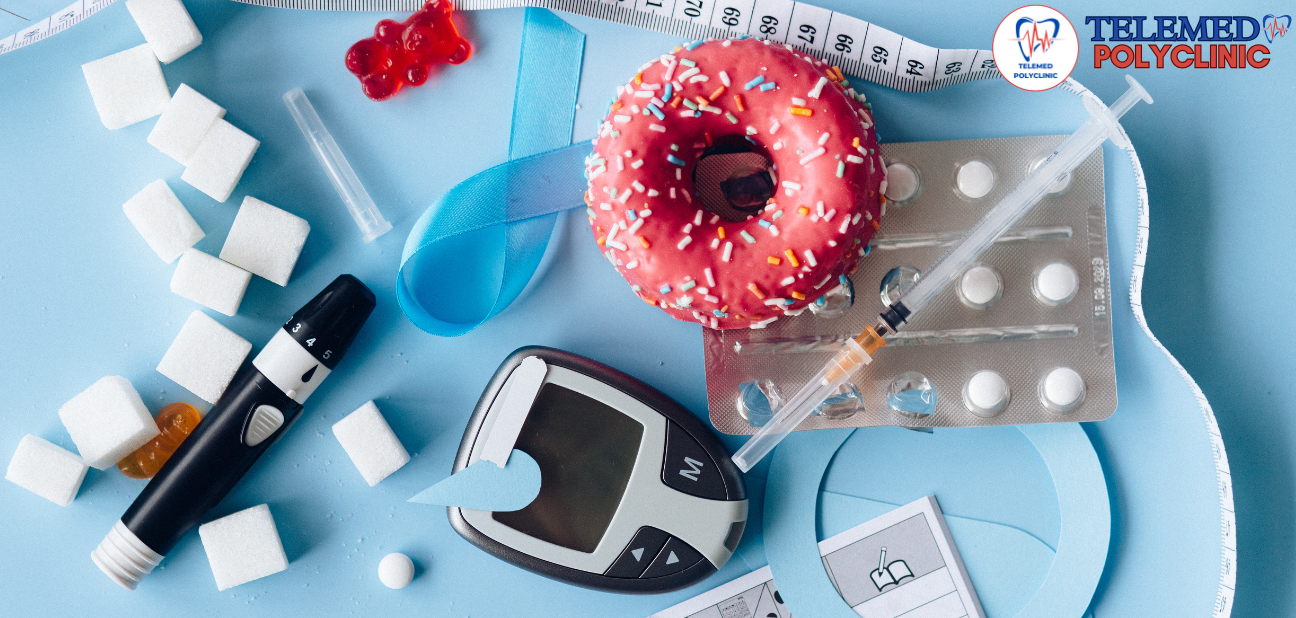
Diabetes mellitus, or diabetes, is a condition where the body either produces insufficient insulin or becomes resistant to its effects. This results in increased glucose levels in the blood, a condition known as hyperglycemia.
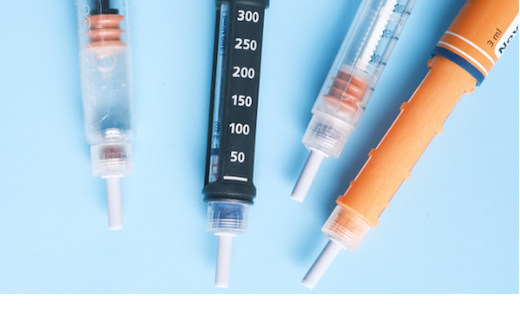
Insulin is a peptide hormone created by the beta cells in the pancreas. Its primary function is to facilitate the entry of glucose into body cells, allowing it to be utilized for energy necessary for daily activities.
n individuals with diabetes, the body either produces too little insulin, none at all or is unresponsive to insulin's effects. This hampers glucose from entering cells, leading to its accumulation in the bloodstream and causing high blood sugar, or hyperglycemia.
Pre-diabetes is a precursor stage to Type 2 diabetes mellitus (DM). In this condition, blood sugar levels are elevated beyond normal but not high enough to warrant a diagnosis of Type 2 DM.
The most common tyoes of diabetes mellitus includes:
The exact cause of Type 1 diabetes is unknown, but it is believed to stem from an autoimmune disorder where the immune system mistakenly attacks and destroys the beta cells in the pancreas. This results in a significantly reduced capacity to produce insulin, necessitating external insulin administration. It primarily affects younger individuals, although adults can also develop it.
Type 2 diabetes occurs when the body does not produce sufficient insulin and/or the cells become resistant to the insulin available. This type mainly affects adults, but it can also occur in children.
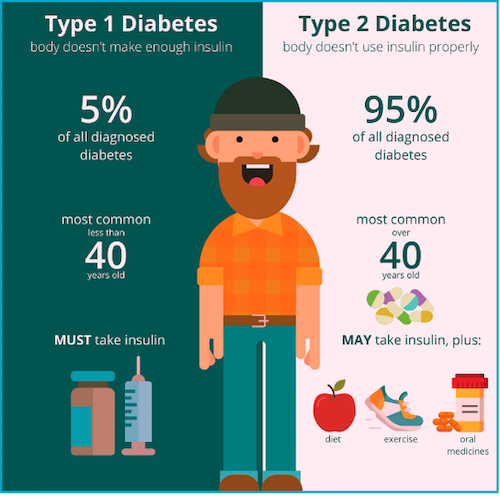
Gestational diabetes mellitus develops during pregnancy. Women who experience GDM may not show any symptoms initially, making timely testing during the second trimester crucial..
The exact cause of Gestational Diabetes Mellitus (GDM) is unknown, but placental hormones can inhibit insulin action, leading to insulin resistance. This makes it difficult for the body to use insulin effectively, requiring increased production. Insufficient insulin can result in high blood glucose levels.
Various blood tests are commonly used to diagnose diabetes, manage the condition, and evaluate treatment responses, these are:
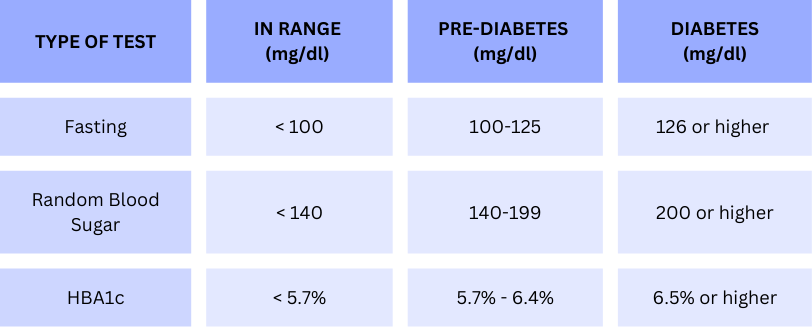
Diabetes is associated with serious health complications. With the right treatment and lifestyle changes, one can prevent or delay the onset of these complications:
Long-term complications of diabetes mellitus are;
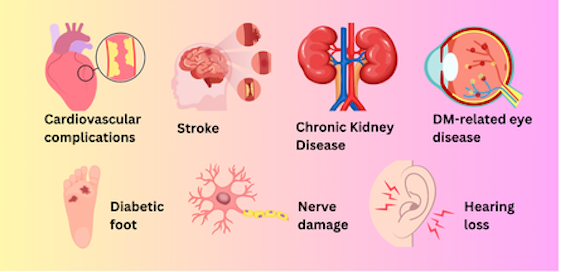

There is an autoimmune or genetic forms of diabetes mellitues i.e. Type 1 DM, but one can make lifestyle changes to prevent the risk of developing prediabetes, Type 2 DM and Gestational Diabetes. Some of the few measures one can take are: